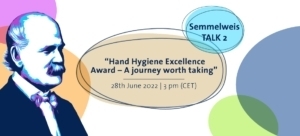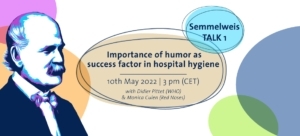Are we are sending the wrong message when we ask health care workers to wash their hands? With Dr. Sharon L. Kurtz from the Walden University, Minneapolis, spoke Carola Timmel.
Mrs. Kurtz, there will be soon be published an article of you in the American Journal of Infection Control with the very interesting question if we are sending the wrong message when we ask health care workers to wash their hands (intermediate step) instead of “stop the transmission” (ultimate goal). Could you already find out, which wording is the more effective or are your investigations still at an early stage?
This is entirely in the idea stage and I have done no study on whether this message would affect the hand hygiene rates and thus the HAI rates or what would be the most effective terminology to use. The article will be published under the opinion section of AJIC.
But you want to find out, which wording would be the more effective?
Currently I am collecting data for my dissertation “Demographic Factors Associated with Hand Hygiene Adherence Among ICU Nurses”. After graduation, I would like to pursue looking at baseline rates and then making an educational intervention using this message of ‘stop the transmission’. I am not sure this message will have the impact we would like to see, but I do know that after 169 years of asking people to wash their hands, the average rate of hand hygiene adherence worldwide is only 40-60% (Erasmus et al, 2010). So maybe it is time to try a different approach. If we ask someone to ‘wash their hands’, we are asking for a single behavioral action. If we ask them to stop the transmission, we ask them to change a concept and thus impact hand hygiene as a means to an end, but not the end behavior itself.
What induced you to engage in this issue?
The idea for this ‘different message’ came from one of my early classes while working on my masters degree. While studying the health belief model, I realized that perhaps the goals of the healthcare workers were different than the goal of the infection control practitioner which is to have the HCW wash their hands to reduce the transfer of organisms and thus reduce the incidence of healthcare associated infections.




